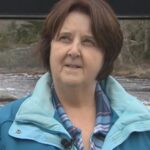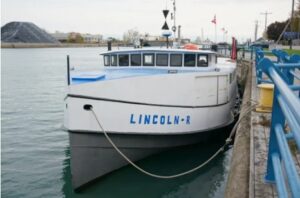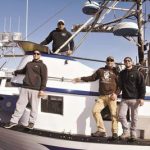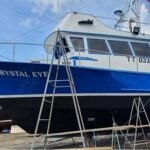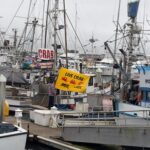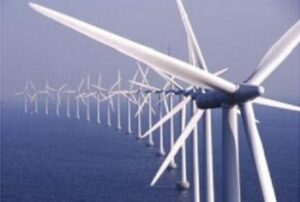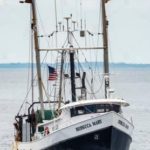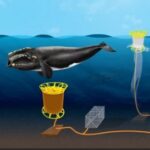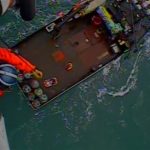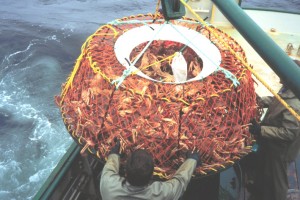Tag Archives: Gulf of Maine ecosystem
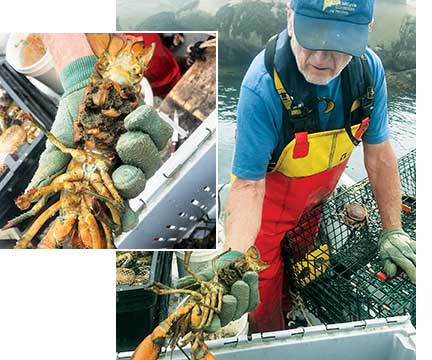
Changes in Lobster Land
“Thick as pudding out here,” says Richard Waldron, 77, taking his glasses off and tucking them in the folds of a red plaid shirt sitting on top of a lobster crate in the stern of his 16-foot skiff. He’s pretty disgusted. This morning he was distracted and forgot his coffee thermos. He opens up the throttle on the outboard and we pick up speed, the rockweed ledges and gray cabin on Flag Island fading into soft focus and then gone as the fog settles like a soggy towel over the Muscle Ridge Channel. A weathered granite shelf as broad as a whale comes up fast. Waldron whips the skiff around it, barely slowing, then we are back scooting through timeless, gauzey fog. This is about as simple as lobstering gets: an open fiberglass skiff with an outboard. click here to read the story 11:37
Latest dispute over alewives in St. Croix River may lead to independent review
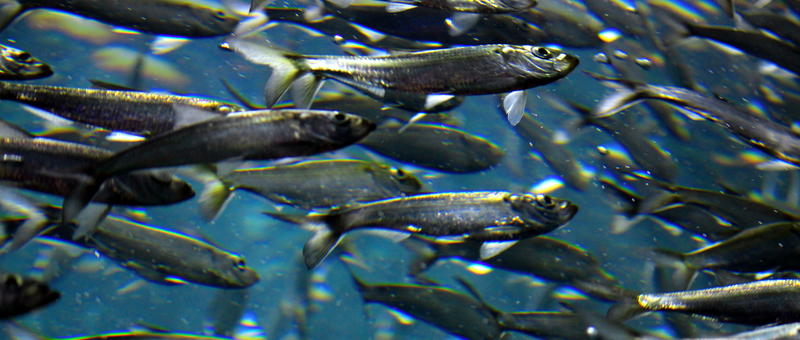 The LePage administration wants to create a working group to examine the scientific arguments over alewives in the St. Croix River as a way to defuse the latest flare-up in a debate over the fish that has raged for two decades. Yet Monday’s hours-long legislative hearing showed that alewives – a type of river herring occupying a critical niche in the – remain divisive even though they have yet to return to the St. Croix in large numbers. Read the rest here 15:09
The LePage administration wants to create a working group to examine the scientific arguments over alewives in the St. Croix River as a way to defuse the latest flare-up in a debate over the fish that has raged for two decades. Yet Monday’s hours-long legislative hearing showed that alewives – a type of river herring occupying a critical niche in the – remain divisive even though they have yet to return to the St. Croix in large numbers. Read the rest here 15:09
Marine experts: Gulf of Maine has become a cod-forsaken place, endangering all fisheries

“Big fish are ecologically extinct,” Steneck said of the Gulf of Maine ecosystem. “They’re not absent … but in terms of an ecological presence, they’re extinct.” The same warmer ocean temperatures that have helped push cod populations north, Steneck said, have provided lobster with a deeper range in which to settle their larva. Sea surface temperatures in the North Atlantic were the highest ever recorded in 2012, following years of historically rapid warming.
“We had a big red hake fishery 30 or 40 years ago,” testified veteran Rhode Island fisherman Rodman Sykes during a morning panel discussion. “We’d fill our boats with them. … We didn’t know where they went. I learned today they came up here [to Maine].” continued@portlandpress

































